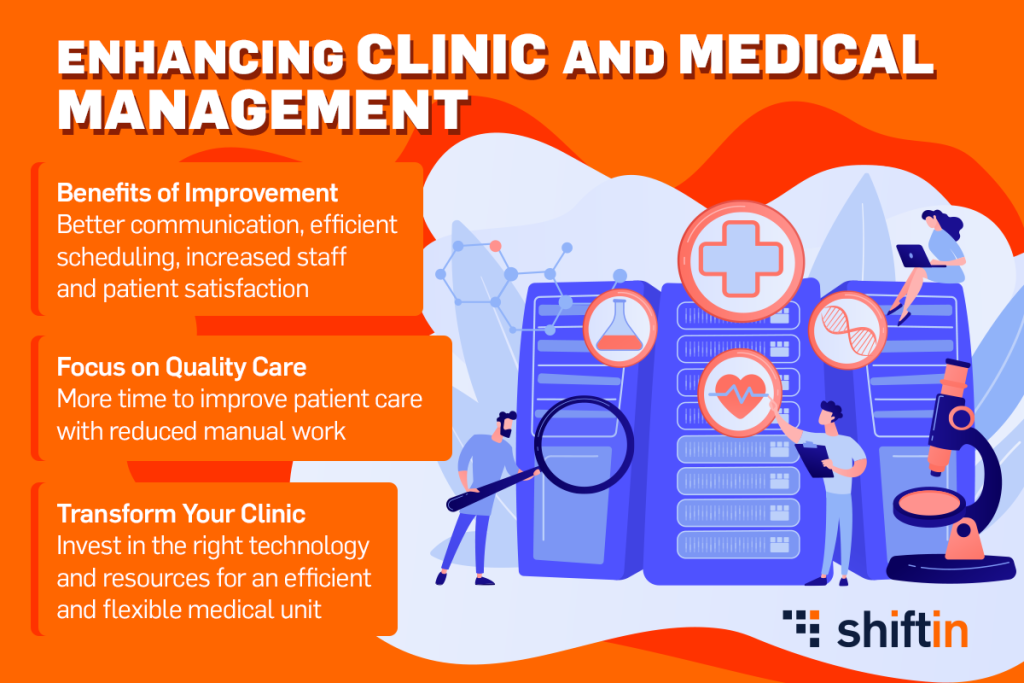Clinic and medical management is becoming increasingly complex and demanding as managers must handle a wide range of aspects, from emerging technologies and changing regulations to the evolving needs and expectations of patients. In recent years, we have witnessed a rapid growth in medical technologies, changes in healthcare regulations and requirements, and a diversification of patient needs and expectations.
With technological advancements, there are more tools and systems that can be integrated into clinical practice to improve efficiency and the quality of patient care. For example, the use of telemedicine, artificial intelligence, and data analytics can revolutionize how medical services are delivered and patients are managed. However, implementing and managing these technologies requires adequate expertise and resources, adding a new dimension of complexity to clinic management.

What is clinic management?
Clinic management involves coordinating all the operations of a medical facility, including patient care, administrative workflows, and financial functions. This entails implementing efficient systems for scheduling, billing, electronic record-keeping, and patient communication. Effective clinic management also includes overseeing staff and ensuring that team members can focus on patient care.
Clinic management is essential for the smooth running of medical activities. How can you become more efficient in this field? Here are some simple strategies to improve your medical management skills in 2024:
Seek anonymous feedback from staff and patients
Don’t make changes just for the sake of it. Try to identify your management weaknesses through anonymous feedback from employees and patients. By learning what needs improvement, you can implement the necessary changes to enhance efficiency and satisfaction.
Analyze workflow to determine staffing needs
Examine patient trends and work patterns to identify staffing needs. If a particular shift is always overcrowded, it might be necessary to redistribute employees to balance workloads.
Honor employees’ scheduling needs for better work-life balance
Offer flexible work schedules to encourage a healthy work-life balance. Respecting employees’ scheduling needs can contribute to improved morale and productivity.
Adopt a mobile communication method for the team
Use a mobile communication app to standardize and simplify team communication. This way, you will avoid confusion and ensure that all members are up to date with important information.
Send appointment reminders and admission forms to patients in advance
To streamline the scheduling and admission process, send reminders and forms to patients before their visit. This will reduce waiting times and increase patient satisfaction.
Implement software for automation and centralization
Use specialized software to automate and centralize clinical operations, including staff scheduling, time tracking, and data management. This approach will reduce manual work and improve overall efficiency in medical management.
By applying these simple tips, you can improve medical management and create a more efficient and pleasant working environment. Investing in the right technology and resources will ensure optimal management of your medical unit, benefiting from better communication, more efficient scheduling, and increased satisfaction for both staff and patients.
By eliminating manual work, you will have more time to focus on improving the quality of patient care. With these tips and the help of a medical management software, you can transform your clinic into an efficient and flexible unit, providing high-quality care to patients.
Try shiftin to improve medical management with automated employee scheduling and much more.





